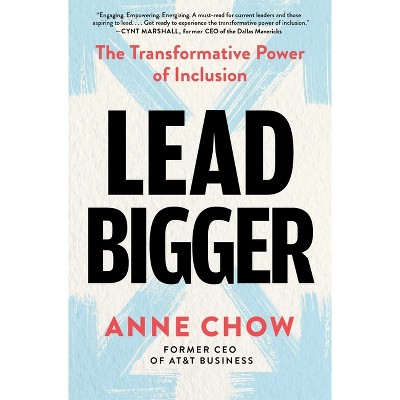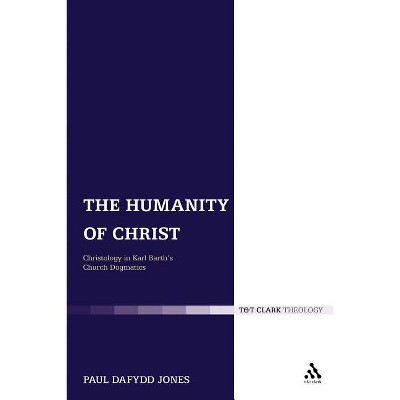Sponsored

Forming Humanity - by Jennifer A Herdt (Paperback)
$35.00
In Stock
Eligible for registries and wish lists
Sponsored
About this item
Highlights
- Now in paperback, Forming Humanity reveals bildung, or ethical formation, as the key to post-Kantian thought.
- About the Author: Jennifer A. Herdt is the Gilbert L. Stark Professor of Christian Ethics at Yale University Divinity School.
- 312 Pages
- Religion + Beliefs, Philosophy
Description
Book Synopsis
Now in paperback, Forming Humanity reveals bildung, or ethical formation, as the key to post-Kantian thought. Kant's proclamation of humankind's emergence from "self-incurred immaturity" left his contemporaries with a puzzle: What models should we use to sculpt ourselves if we no longer look to divine grace or received authorities? Deftly uncovering the roots of this question in Rhineland mysticism, Pietist introspection, and the rise of the bildungsroman, Jennifer A. Herdt reveals bildung, or ethical formation, as the key to post-Kantian thought. This was no simple process of secularization, in which human beings took responsibility for something they had earlier left in the hands of God. Rather, theorists of bildung, from Herder through Goethe to Hegel, championed human agency in self-determination while working out the social and political implications of our creation in the image of God. While bildung was invoked to justify racism and colonialism by stigmatizing those deemed resistant to self-cultivation, it also nourished ideals of dialogical encounter and mutual recognition. Herdt reveals how the project of forming humanity lives on in our ongoing efforts to grapple with this complicated legacy.Review Quotes
2020 Outstanding Academic Title, Humanities "In this scrupulous excavation of the traditions of modern Western philosophy, Herdt brings into the light an often-ignored aspect of modern normative theories, namely, the deep-rooted ties between Christian moral theology and the Bildung tradition. . . . Herdt's original contribution is likely to push debates in new directions. Forming Humanity is a splendid resource for those working in 18th- and 19th-century German philosophy, Christian theology, ethics, literature, and education. . . . Summing Up: Essential."-- "CHOICE"
"Forming Humanity is an exceptionally nuanced and persuasive account of Christian moral formation in this ostensibly secularizing tradition. By presenting the Bildung tradition as a highly complex engagement with Christianity, the author has made a major contribution to our understanding of it. She has eloquently refuted the secularization thesis and has also demonstrated the variety of ways in which Christianity is both contested and continued, transmuted and transformed in the authors she treats. It is an original and persuasive scholarly account that successfully continues the author's previous work on divine and human agency while uniting it with an ethics of mutual recognition. This constellation of topics, and the author's particular version of it, are on the forefront of the best work in Christian ethics today."--Gerald McKenny, author of Biotechnology, Human Nature and Christian Ethics
"[Herdt] admiringly trudges over immense ground in German intellectual history and literature, from medieval mystics such as Meister Eckhart; to early-modern Pietist thinkers such as Johann Arndt and Jakob Boehme; to canonical thinkers of the German Enlightenment and Romantic period."
-- "Scottish Journal of Theology"
"As to the whole of the book, I think it is brilliant, I think it is necessary, I think that it cannot be highly enough recommended. And I sincerely hope that the modern world assumes the task of Bildung for the realization of its higher humanity."-- "Sun News Tuscon"
"Herdt's latest book explores the German Romantics as offering an entirely distinct way of thinking about morality and religious belief in the modern age. Unlike many other forms of 'modernity critique, ' this project begins not from premises fundamentally antedating modernity but from principles enunciated from within self-consciously modern perspectives. It will alter the way we think about ethical and religious life today, not least by offering one history for many of our more free-floating worries about our condition, and our strategies about the challenges that confront us. In a moment when antimodernism seems theoretically bankrupt but practically pervasive, while questions of modernity are more urgent than ever before, Herdt's book offers a critical path into the future, beyond nostalgia and resentment."--Charles Mathewes, Carolyn M. Barbour Professor of Religious Studies, University of Virginia
"In this splendid book, Jennifer Herdt has thus provided a valuable service in tracing the ways in which the concept of Bildung figures in the work of some of the most prominent thinkers of the period. With verve and impressive erudition, Herdt details how the notion of Bildung originated in the German pietist movement in the seventeenth century, and blossomed into a more (though perhaps not entirely) humanistic ideal in the subsequent work of Herder, Wilhelm von Humboldt, Schiller, Goethe, and Hegel."--Timothy Stoll "Notre Dame Philosophical Reviews"
"The double purpose of this lucid, profound, and provocative book is announced in its title. It is both an intellectual history of the origins of the German idea of Bildung and a work of Christian apologetics."-- "The Journal of Modern History"
"This book is indispensable for those interested in the relationship between philosophical and theological ethics, since the book clearly shows relationships of dependence and critique between philosophy and theology in German Romanticism."-- "Religious Studies Review"
"This is a very satisfying book in its clarity, its broad range of reference and its careful and fresh reading of a major epoch in the history of the European imagination."-- "Modern Theology"
"With exemplary scholarship, depth, and clarity Herdt provides a compelling and rich analysis of the Bildung tradition and the interactions of theology, philosophy, and literature that shaped it. And through her constructive intellectual history, Herdt interrogates and opens out theological and historical frameworks for thinking through a central conceptual crisis of our own day: how to imagine and cultivate a sense of shared humanity when the very notion of humanity as a universal moral and political community is at once deeply problematic and urgently needed."--Luke Bretherton, Kenan Institute for Ethics, Duke University
About the Author
Jennifer A. Herdt is the Gilbert L. Stark Professor of Christian Ethics at Yale University Divinity School. Her previous books include Putting On Virtue, also published by the University of Chicago Press.Dimensions (Overall): 9.0 Inches (H) x 6.0 Inches (W) x .76 Inches (D)
Weight: 1.09 Pounds
Suggested Age: 22 Years and Up
Number of Pages: 312
Genre: Religion + Beliefs
Sub-Genre: Philosophy
Publisher: University of Chicago Press
Format: Paperback
Author: Jennifer A Herdt
Language: English
Street Date: August 19, 2024
TCIN: 1006100928
UPC: 9780226836904
Item Number (DPCI): 247-50-1046
Origin: Made in the USA or Imported
If the item details aren’t accurate or complete, we want to know about it.
Shipping details
Estimated ship dimensions: 0.76 inches length x 6 inches width x 9 inches height
Estimated ship weight: 1.09 pounds
We regret that this item cannot be shipped to PO Boxes.
This item cannot be shipped to the following locations: American Samoa (see also separate entry under AS), Guam (see also separate entry under GU), Northern Mariana Islands, Puerto Rico (see also separate entry under PR), United States Minor Outlying Islands, Virgin Islands, U.S., APO/FPO
Return details
This item can be returned to any Target store or Target.com.
This item must be returned within 90 days of the date it was purchased in store, shipped, delivered by a Shipt shopper, or made ready for pickup.
See the return policy for complete information.
Trending Non-Fiction

$19.31
was $20.98 New lower price
4 out of 5 stars with 58 ratings
















